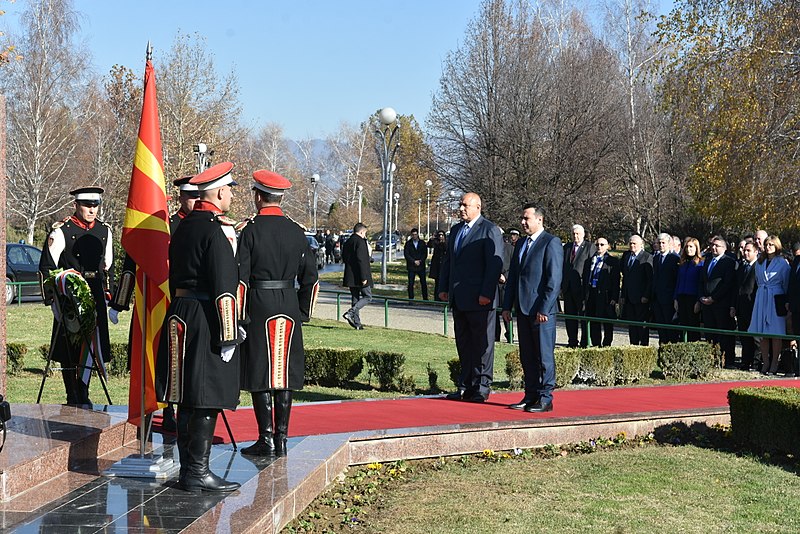Unfortunately, in the history of the European Union and of all of Europe, 17 November 2020 may become a momentous date to be remembered, unless the situation is rectified soon. On this day, Bulgaria acted on its 2019 ultimatum of over 20 items to Skopje and vetoed the highly expected opening of the EU accession negotiations with North Macedonia. Prior to this decision, the Bulgarian government and this country’s political elite loudly complained that the EU is unable to understand Bulgarian history and Sofia’s position on North Macedonia, which was ‘surprising,’ because ‘Bulgarian historical science’ (българската историческа наука) ‘proves’ that Sofia is right. The Bulgarian delegation proceeded with the blocking the opening of the accession talks with North Macedonia, despite an open letter by leading Bulgarian scholars’ on 5 October 2020, in which they warned not to follow this dangerous path. Above all, as reported in the European press, Sofia wants North Macedonia to acknowledge that Macedonian is not a language in its own right, but a form or dialect of Bulgarian. Doing politics by ultimatums has been unprecedented in postwar Europe – until now. Previously, not a single EU member state had ever introduced conditions to be met by a candidate country that would fall outside the negotiation chapters.
To decide about a state’s language, identity and history is part and parcel of sovereignty, as practiced in Europe during the last three centuries and a half. Other polities have no right to intrude, lest conflicts arise. On the other hand, it must be noted that through time a single language may diverge into more, as in the case of Latin that spawned French or Italian. An opposite situation is possible too, when speakers of two languages decide that it is a single one, as in the case of the 1980 Language Union between Belgium’s Flemish and the Netherlands’ Dutch that resulted in the Netherlandish language. Yet, in their vast majority speakers of Macedonian do not see their language as (part of) Bulgarian, and likewise do not claim Bulgarian to be a form of Macedonian. Why can’t then Bulgaria respect its neighbor’s sovereignty?
Many international observers rightly brand the tendencies on display by governments in present-day Hungary or Poland as autocratic. But almost no one takes note of the fact that in the EU, rule of law is least observed in Bulgaria, and that the Bulgarian Prime Minister of the last decade is part of this problem. On top of that Bulgaria is the poorest EU member state. And now Bulgaria uses the EU to throw its weight around abroad, this time by intruding on North Macedonia’s sovereignty. It is a case of the tail wagging the dog.
Sofia’s veto is a blatant breach of Article 1 of the Helsinki Final Act (1975). Bulgaria follows Russia, which in 2014 violated multiple provisions of this document by annexing Ukraine’s Crimea. Turning a blind eye to what Sofia’s doing is no option, because it may soon face the EU with yet another cycle of conflict in the Balkans.
In 2017, in return for Sofia’s support for Albania’s efforts to open accession talks with the EU, Tirana agreed to relabel the country’s Slavic-speaking minority of Macedonians as ‘Bulgarians.’ Apart from North Macedonia, Bulgaria is also spoiling for conflict in southern Moldova, where Sofia supports separatist tendencies among the area’s Bulgarian minority. At the same time, back home, the Bulgarian authorities do their best to suppress and alienate Bulgaria’s Turkish minority and Roma. None of this bodes well. In addition, it appears that the Bulgarian government emulates the Kremlin’s neoimperial policy of ‘Russian world’ (Русский мир). While Moscow wants to regain control over all the post-Soviet countries, Bulgaria in its quest for a ‘Bulgarian world’ (Български свят). So far this term pops up only in Bulgarian school textbooks; meanwhile Sofia appears to be seeking to build a continuous Balkan sphere of influence from Albania to Moldova.
Tomasz Kamusella is Reader in Modern History at the University of St Andrews, Scotland, UK. His latest monograph is titled Ethnic Cleansing During the Cold War: The Forgotten 1989 Expulsion of Turks from Communist Bulgaria (2018).

